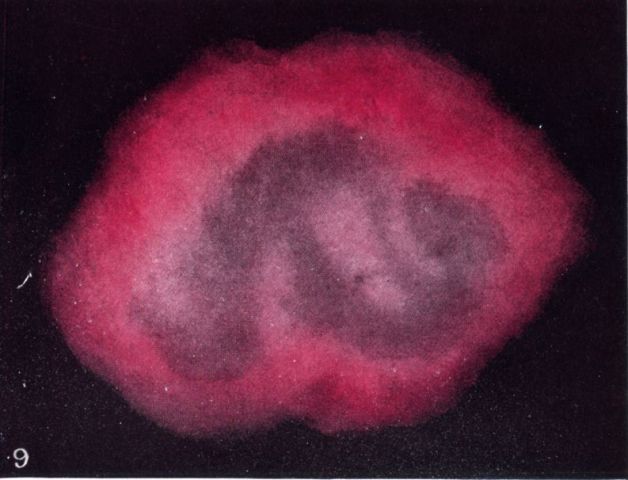The Power of Thought
We generate three karmic forces every day of our lives: thought, emotion, and action. The most powerful of these three is thought. Thought is the origin of action and controls emotion. It is as powerful a force as electricity. Like all forms of energy, thought can be used for both good and ill, just as electricity can be used to improve the quality of life or to destroy it. Since the action of every force has an equal and opposite reaction, and since thought is a power we all control to some degree, it is important to know just what thought is and how it can be used effectively.
The Nature and Effect of Thought
Thought is an energy that consciousness produces to modify the subtle matter of the mental energy field or plane. When we think, we cause our mental body to vibrate in certain ways, and those vibrations are passed on to the surrounding matter of the mental world. Those vibrations create thought forms, shapes in the mental energy field whose colours, shapes, definiteness of form, and persistence correspond to the quality, type, clarity, and intensity of the thought that produced them. One of the great Teachers said, succinctly and literally, "Thoughts are things."
When we habitually think the same thought or the same type of thought, the resulting thought form is produced quickly and accurately. On the other hand, when we attempt to think along new and, for us, unusual lines, the resulting thought form will be slow and uncertain because our mental body is not yet accustomed to that particular type of vibration. This is one explanation for the initial difficulty people sometimes experience in studying a new subject or thinking in new ways. The mental body resists because of the effort required to set aside habitual modes of thought and to strike out in new directions that lack the comfortable mental grooves (or vibrations) in which our thought is accustomed to flow. Getting out of old grooves requires persistent mental effort.
The effects of thought are of two kinds: those that react on the thinker and those that affect others.
The effects of thought on the thinker are also twofold. First, any repeated thought establishes a vibratory habit in our mental body. Second, thought has side effects on the astral and causal bodies. In our astral body, the effects are temporary emotions. In our causal body, however, thoughts have a permanent influence on our character. We make ourselves by the way we think. It is for this reason that right thought is so important. Our thoughts not only reinforce our habitual physical and emotional reactions, but they also build qualities into our causal body that form part of our permanent character, life after life.
The effects of our thoughts on others are through the mental field that unites them and us. When we think, radiating vibrations create a thought form that floats through the mental plane, setting up corresponding vibrations in the mental bodies of those it impinges on.

Radiating affection
In addition, because the mental and emotional energy fields are intermingled and interpenetrating, thought vibrations cause changes in the emotional atmosphere, just as wind affects the surface of the sea and stirs up great waves. In the same way, emotions play upon the matter of the mental realm and create thoughts. Naturally, such mental - emotional vibrations can affect anyone coming within their range, just as a storm of wind and waves at sea affects ships caught in it. Thought forms, however, are not limited by time and space in the way physical forms are. They can spread rapidly over a wide area, being in that way more like radio or TV waves than air or water waves. On the other hand, they can also be directed to focus on a particular person.
Thought waves convey the general nature of the original thought, rather than its exact message. For example, a Christian might pick up the thought of awe or devotion of a Hindu worshipper of Sri Krishna. But the Christian would perceive and express it as devotion to Jesus. Similarly, a person might have an angry thought about someone, and that thought may be picked up by other people who apply it to their own objects of hostility, reinforcing any anger in their own hearts.

Anger and rage directed to another person
We are surrounded by others' thoughts of many sorts: happy and sad, angry and peaceful. But no external thought can impinge on us unless we are already attuned to its kind. We are not victims of the mental world around us, but active participants in it. Just as you select a TV channel to watch, you can select a thought channel to participate in. Obviously then, it is a good idea for us to tune in to right thoughts in the mental world. Right thoughts are a shield against wrong ones. The way to air out a badly ventilated room is to open its windows and flood it with fresh air; the way to clear a mind clogged with wrong thoughts is to fill it with right ones.
Clairvoyants tell us that thought forms have shapes and colour pale or vivid, muddy or clear according to the type and character of the thought that created them.

Vague selfish affection
They also say that the definiteness or vagueness of a thought is reflected in the clarity of the outline of its form. If our thoughts are clear?and they can be clear in a harmful as well as a helpful way they will be resistant to being replaced by other thoughts. Prejudice, for example, can create rigid thought forms, hard to dissolve, whereas fairness creates forms that are adaptable but also strong. And the more intensely we think, the longer the thought forms we produce will last.

Comments (0)